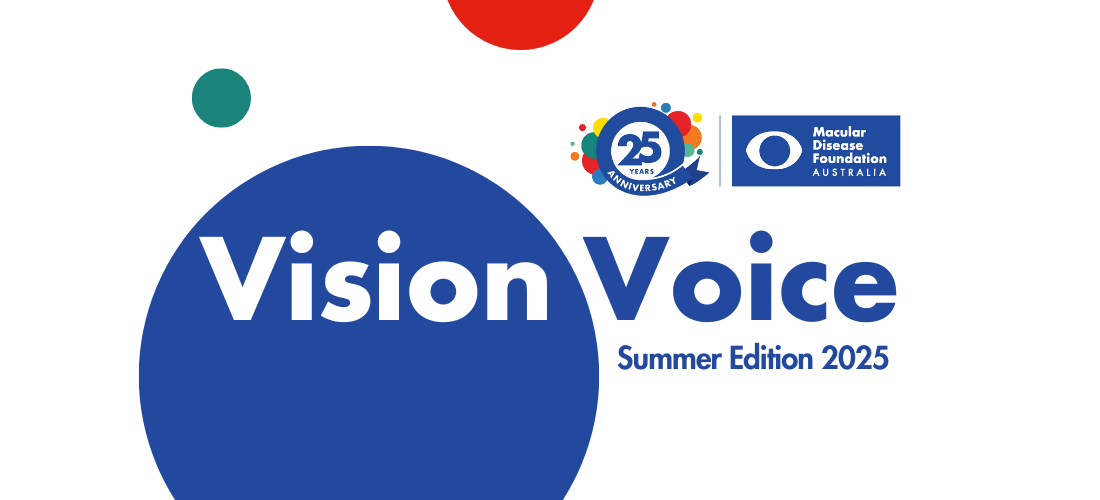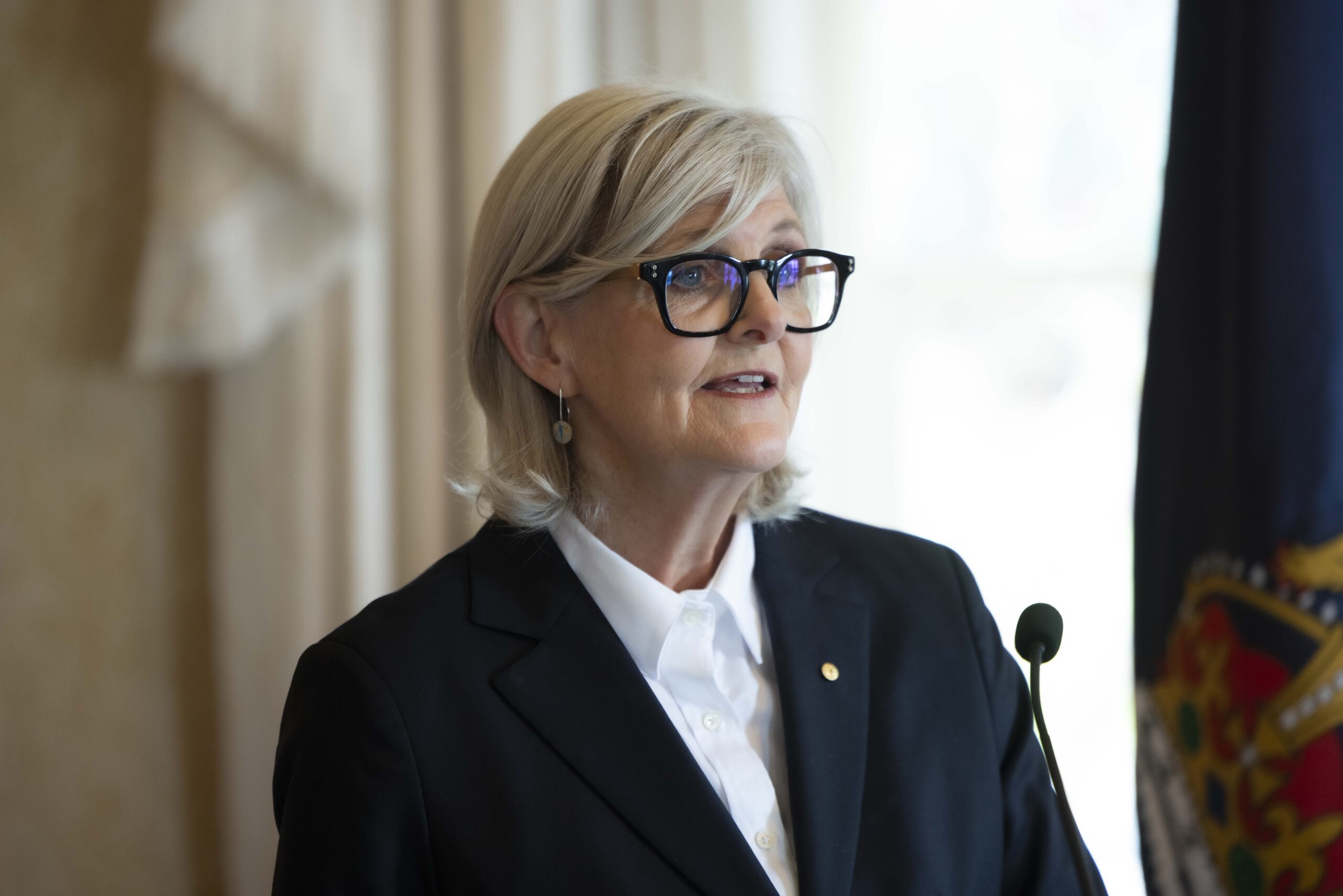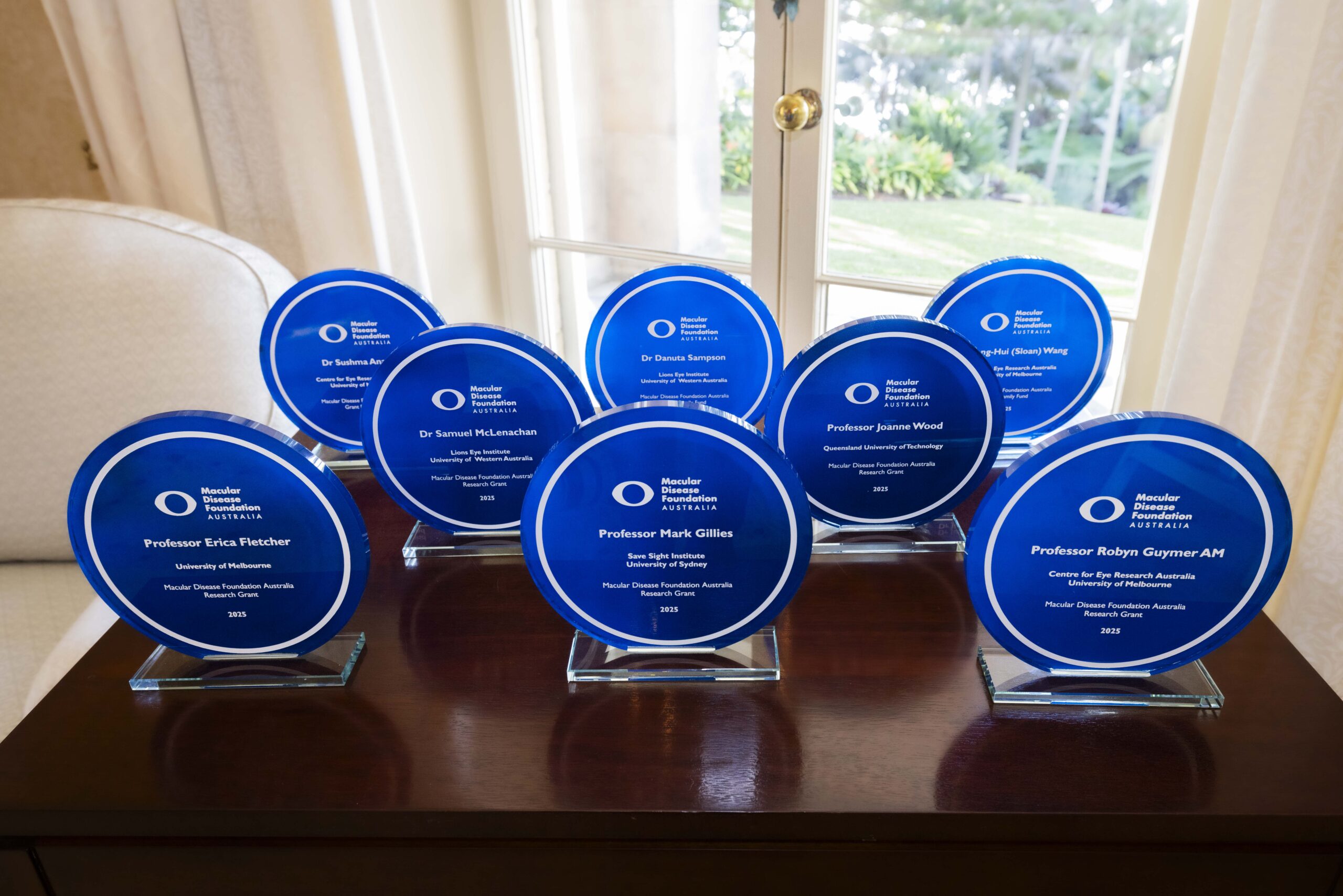November 2021
In recent months a number of developments have taken place in the busy field of macular disease drug development. Macula Matters has selected a few of the most relevant.
Ranibizumab (Lucentis®) was first approved in Australia in 2007. In September a ranibizumab biosimilar (Byooviz®), developed by Samsung Bioepis, was approved in the USA and Europe. Biogen hold the rights to commercialise the product in Australia.
In August, REGENERON Pharmaceuticals announced phase II study results showing greater efficacy of 8mg “high dose” versus the standard 2mg dose of aflibercept in patients with nAMD. Phase III trials are under way in nAMD (PULSAR) and DMO (PHOTON) to test efficacy with treatment intervals up to 16 weeks. Results are expected in late 2022.
Brolucizumab (Beovu®), developed by Novartis, was listed for PBS subsidy in Australia from 1st October. Brolucizumab is only available for patients who have received ranibizumab (Lucentis®) and/or aflibercept (EYLEA®) for at least six months and have not responded to first-line treatment.
Roche’s port delivery system (PDS) is a permanent refillable drug reservoir implant that continuously delivers a modified preparation of ranibizumab (Susvimo®) into the eye for the treatment of neovascular AMD. In October, the system was approved by the US FDA for patients with nAMD who responded to two or more previous anti-VEGF injections, based on results from the phase III ARCHWAY trial. The device is under regulatory review in Europe. Additional studies are under way for DMO and DR.
Australian company Opthea have opened up local recruitment for two phase III studies of OPT-302 in neovascular AMD. OPT-302 is a ‘trap’ inhibitor of VEGF-C and VEGF-D. Both studies compare OPT-302 in combination with either ranibuzumab (ShORe) or aflibercept (COAST), versus monotherapy with these respective agents.
Two further agents appear to have an uncertain future. Abicipar pegol, developed by Allergan and Molecular Partners, was rejected by the FDA in 2020 due to a high rate of intraocular inflammation. Applications were subsequently withdrawn from the Japanese and European regulatory agencies. In August, Molecular Partners took back control of the development program and are considering next steps.
In April, two international clinical trials for conbercept (Lumitin®) were terminated.
Developers Chengdu Kanghong announced the PANDA-1 and PANDA-2 trials had been impacted by the COVID-19 pandemic and would not achieve their goals. The future of the product outside China is unclear.
For a more comprehensive review of progress in the drug development field for macular diseases check out our report in the Summer 2021 edition of Vision Voice.
MDFA does not accept liability for out of date, misinterpreted or incorrect information. This information is a summary only and further information is available from the MDFA. Mention of treatments and companies in this update does not constitute endorsement by MDFA.
















